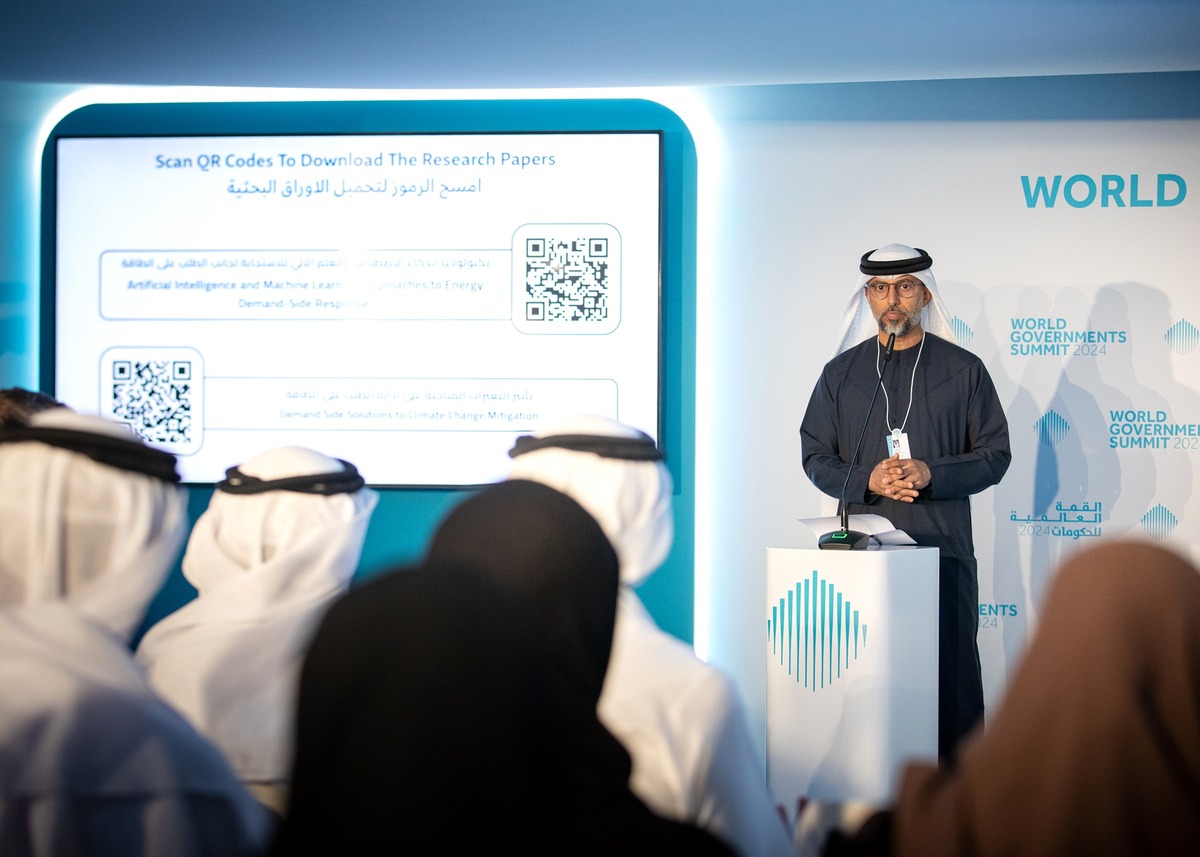The Ministry of Energy and Infrastructure today launched the Big Data Ecosystem and the Digital Twin Platform for the energy and infrastructure sectors at the World Governments Summit (WGS) 2024 in Dubai.
The initiatives aim to analyze and leverage big data and digital technologies to improve strategic decision-making and sustainable development, and enhance the country’s leadership within global competitiveness indicators.
“Digital twinning is the latest technology that creates an accurate digital model of assets, operational facilities, and service facilities in a way that allows the transfer of live data and information to simulate behavior and monitor operations,” said Suhail Mohamed Al Mazrouei, Minister of Energy and Infrastructure, on the sidelines of the WGS.
Digital Twin Platform
The Digital Twin Platform displays live data on the livability and sustainability of cities on 3D models. It includes statistics about energy and water consumption, carbon footprint, traffic, demographic diversity, services, air quality, and waste to support decision-making and the implementation of targeted initiatives. Moreover, it provides a set of proactive models related to protecting infrastructure assets, improving traffic to reduce accidents and congestion, mitigating the effects of climate change, shaping future and predictive maintenance plans, and achieving climate neutrality.
The platform also aims to strengthen the resilience of infrastructure to natural hazards and extreme weather events, enhance the efficiency of water and energy management, and improve waste management.
Big Data Ecosystem
The Big Data Ecosystem aims to link integrated data with partners to promote the transition to more sustainable energy systems through data analysis. It also leverages artificial intelligence, simulation, and predictive smart analytics to shape the future of energy and infrastructure, in addition to its role in building capabilities and developing human resources.
The minister stressed the role of the two projects in helping achieve the sustainable development goals, by improving energy consumption and promoting optimal use of resources, which is part of a broader vision that seeks to transform the UAE into a global center for innovation in the energy and infrastructure sectors.
Two research papers
In collaboration with Heriot-Watt University, the ministry launched two research papers as part of its participation at the WGS. The first paper examines the role of AI and machine learning in demand-side response in energy systems. It emphasizes the significance of demand-side response aggregators and the challenges that can be tackled using AI in this field.
The second paper evaluates the potential of demand-side options to mitigate emissions, categorizing them into avoidance, shifting, and improvement. It underscores that implementing these options with an understanding of adaptable preferences and evolving infrastructures can effectively reduce sectoral emissions while also being beneficial for human well-being.
For more updates on energy, click here.








